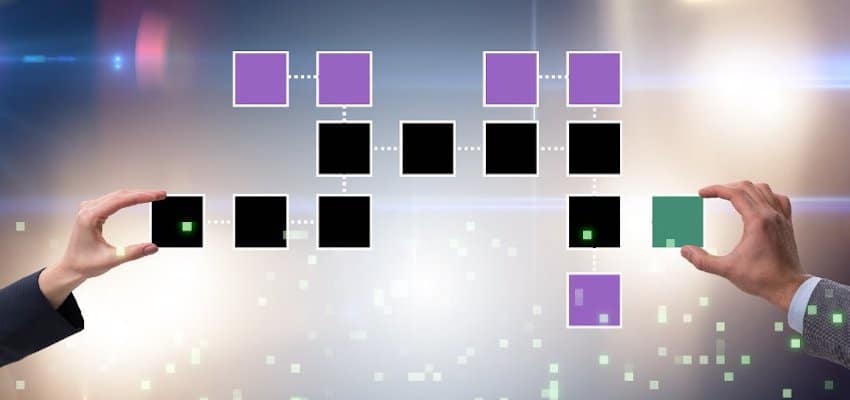
Healthcare systems are beginning to use blockchain technologies in transformative ways as organizations confidentially exchange patient data, identify errors in medical records, and otherwise improve and enhance security and performance. Hospitals and other healthcare organizations can also analyze medical records more effectively, glean critical insights, and much more. This technology also helps to prevent deceptive practices in clinical trials.
Blockchain Technology Definition and Structure
A blockchain is a type of ledger—decentralized and public—where transactions from multiple computers are recorded. Each entry is verified as it’s linked to the one preceding it, creating a long chain of ledger items. Blockchains provide significant accountability because no record can be retroactively changed without having an impact on all of the subsequent entries.
- Each transaction is publicly registered and checked, this means nobody can get into the blockchain to modify all of the data.
- Data is maintained on networks (decentralized), so there is no central database that can be hacked.
- Because a blockchain is part of a distributed ledger, records can’t be modified or deleted without group consensus.
Although the transparency of the blockchain may seem to be a negative when it comes to confidential records, it’s also private with blockchain user identities and their medical data securely protected. So, patients as well as doctors and other healthcare providers can have secure, private access to crucial data.
Expanded Blockchain Use in the Future
Blockchain usage is starting to simplify the creation and upkeep of healthcare provider directories. It is also expected to streamline informed consent requests given to patients. Currently, a patient may sign multiple copies, one each for every medical care provider. A signed consent form on the blockchain would make it easy for providers to access the appropriate content forms without duplicating the request and filing processes. Plus, blockchain support of financial payments, especially at the micro level, may become a real gamechanger.
EHR Blockchain Developmental Study
On January 22, 2021, the Journal of Medical Internet Research published information about the creation and evaluation of an experimental electronic health record (EHR) blockchain called HealthChain. In Healthchain, three organizations—hospitals, insurance providers, and governmental organizations—collaborated in a blockchain consortium. Business logic with a governance model was agreed upon by all three participant types.
Each block on the blockchain contains a header along with EHR transactions and connected metadata. The header contains the block number as well as the block hash of the previous transaction and the current one. As medical professionals and patients submit transaction data, the metadata records the timestamp and the orderer’s certificate and signature. Each transaction will also contain a unique ID; name of the chaincode; the EHR request and response; and user and peer signatures.
The result? Healthchain achieved the two main types of objectives: functional and non-functional. EHR records are stored in a distributed ledger and are effectively and securely shared with relevant participants. So, Healthchain or similar technologies may bolster EHR systems in the future, further strengthening their performance, security, and overall value.
Blockchain and Electronic Health Record Case Study
According to the U.S. Department of Health and Human Services (HHS) in their “Blockchain for Healthcare” report of 10/7/21, blockchain use in EHR technology provides numerous important benefits.
HHS cites 2016 research from John Hopkins University where they discussed the third largest cause of death in the United States: medical errors. This included care that wasn’t optimally coordinated and errors of omission in patients’ medical records. The challenge, then, was to further improve and enhance complete accessibility to patient records across medical providers while maintaining appropriate levels of security.
The recommended solution was to link blockchain-based medical record systems with existing EHR software. This, the HHS notes, would provide an “overarching, single view of a patient’s records without placing patient data on the blockchain.”
Each record would be appended through the use of a hash, which they describe as the “Digital equivalent of a fingerprint; unique and useful for detecting change in a file . . . that makes the blockchain secure.” This hash can only be decoded if the data owner—in this case, the patient—provides consent.
Benefits of this system include:
- Comprehensive, single source of accurate patient medical records
- Direct access of validated services by medical insurers, confirmed by patients without the need for an intermediary; this saves healthcare organizations both time and money
- More advanced analytics
As blockchain technology becomes increasingly integrated with EHR software, healthcare organizations will need EHR consultants with experience and skills in this advanced technology. This includes but isn’t limited to EHR cyber security experts. Fortunately, HealthTECH Resources can help.
HealthTECH Resources: EHR/EMR Consulting / Staff Augmentation Firm
As new technology emerges and becomes integrated with current EHR solutions, HealthTECH Resources will continue to enhance and maintain a network of top quality EHR/EMR consulting professionals. So, when your healthcare organization needs to fill any staffing gaps in your IT department, we can seamlessly fill them—including but not limited to individuals with an expertise in blockchain technology, EHR cyber security professionals, and more.
Our experts will collaborate with your IT department and healthcare organization to understand your current technologies and what your goals are for further enhancements of the applications. This includes any past or present security threats and your requirements for ease of access to well protected data.
Our experts can discuss the latest blockchain technologies with you, relating them to how these advancements are furthering the efficient, cost effective, secure EHR applications of today. Experts in our network can also capture process documentation and provide training programs on EHR technology as yours advances.
To get answers to your questions or to get the right experts to supplement your IT team, please contact us online today or call us at (602) 903-7961. Our boutique agency is the smart choice for your IT staff augmentation, thanks to our 20 years of experience. You can benefit from expertise from EHR consultants in our extensive professional networks or choose contract-to-hire professionals or those available as permanent placements.

PRESIDENT/CEO AT HEALTHTECH RESOURCES
Larry has specialized in building strategic healthcare relationships for over 25 years, helping the nation’s top payors and providers solve some of their most pressing business challenges through an intelligent mix of staffing services, training, and consulting.
